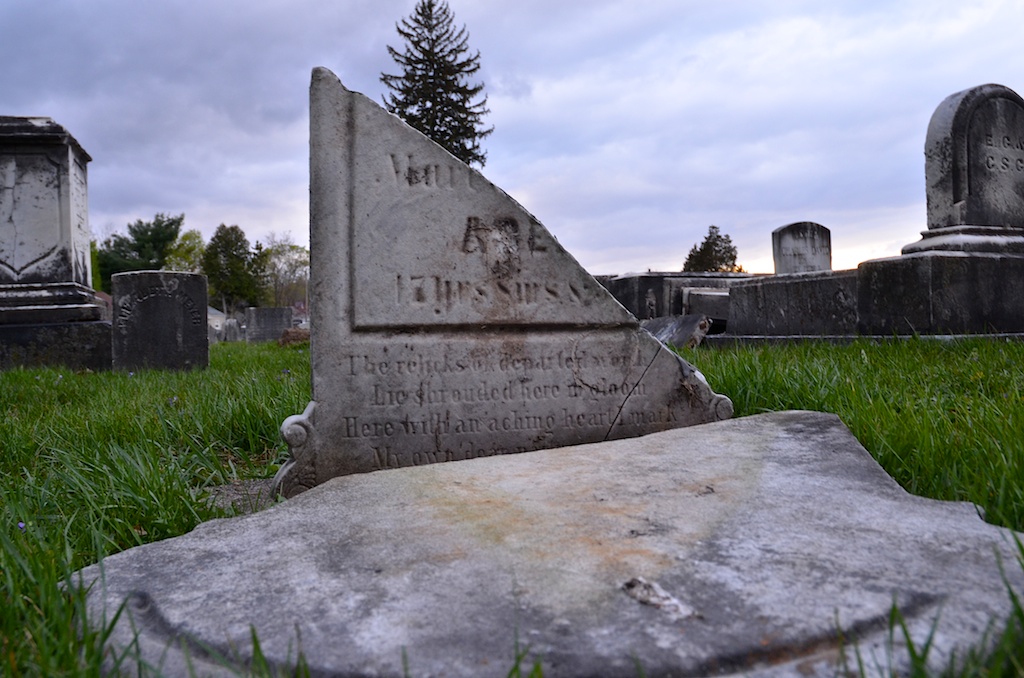File under: “Better late than never.”
Welcome to the Silver Anniversary of the BSC! I am a day late and a dollar short (and a modest listing from a lot of great blogs this month) but I hope this will help slake your thirst for biblical studies related information. Here and there I included posts from November since we there was no official BSC (you are forgiven James), but do see the superb “little unofficial Biblical Studies carnivalette” by Doug Chaplin. (I would hate to see what a venti official Biblical Studies Carnival from Doug would look like!)
This is in no way complete. It is, in fact, a mere morsel, a simple mutt jumping through a little girl’s hula-hoop with the little brother making arm-pit noises behind a sheet marked “Amazing Pig Boy” rather than a full-fledged carnival. So if you have suggestions of additional December posts worthy of inclusion please either put them in the comments, or better yet, email me with the permalink to the post and a brief description and I will include it in the body of the post.
Now, ladies and gentlemen! Allow me to draw your attention to the center ring!
SBL Call for Papers: 
SBL ended just before Thanksgiving and there were many, many posts with follow up, but I wanted to remind everyone that the call for papers already is out! I posted on the Aramaic Studies Session (I don’t think I have seen any other sections posted on any blogs, please correct me if I am wrong!) and of course you can go directly the SBL site.
Hebrew Bible
Smaller is Bigger
A number of bloggers noted the news story announcing the “nano Bible.” Scientists at The Technion in Israel, “were able to pack the 308,428-word Hebrew Bible – known to most as the Old Testament – on a 0.5 millimetre square.” Cool. It is pointed, but no cantillation. At least I don’t think so. Where are my glasses….
P is for Parsimony (the Law of)
Kevin Wilson of Blue Cord posted a series of articles on P. One is in response to an article by John Hobbins at Ancient Hebrew Poetry regarding parallel structures in Gen. 1 and 3. This thread continued here and here. He posted further thoughts (here) on the priestly narrative Numbers while reading and reviewing Christopher Nihan’s From Priestly Torah to Pentateuch.
Reading and Riting
Duane Smith with Abnormal Interests just sent me an email with some great links and commentary:
Charles Halton at Awilum did two helpful bibliographical posts on ancient authorship and literacy. His post on “Names in the Study of Biblical History” was also very helpful, especially his two concluding questions, “What do you think of evidence of this kind when used to date the composition of biblical books? How should we view spelling conventions with respect to literary provenance?” These questions deserve a lot of discussion.
James Getz at Ketuvim continued the discussion of the origin of the Hebrew language with a most interesting post, “A Different Angle on the Hebrew Question.”
The Election of the Messiah
In keeping with both the upcoming US election and Christmas (more on that below) John Hobbins of Ancient Hebrew Poetry has an interesting post, to be expanded or continued I am sure, on Isaiah 11:1-9 as a passage for an election year.
With an election year upon us in the United States, it is appropriate to hold up a passage like Isaiah 11 or Psalm 72 to the face of those who would be president, as if it were a mirror, and see whether any features of any candidate are recognizable in its reflection.
War, what is it good for?
According to John Hobbins, “The larger question is, who decides what war means? Those who refuse to fight it, or those who do?” In a similar vein, following John’s but developed independently, Doug Chaplin’s Justice in war and the love of neighbor.
Early Judaism
Tis the Season
Given the time of Advent there were a variety of posts dealing with Christmassy type items. (Such as kitsch creches.) Michael Barber of Singing in the Reign (cute, eh?) has a very nice and thoroughly footnoted series on Jesus and the Eschaton, Parts 1, 2, and 2.1.
Jim Davila who, let’s face it, provides his own constant “Best Of” set of links for any and every story relating to biblical studies and particularly early Judaism, notes a story about Mary from Syriac traditions.
Breaking News
Jim just emailed me this follow up from last month as well. Both posts worthy of noting again:
The first is on Richard Bauckham’s retirement. It was actually posted on October 31st, but it wasn’t noted in the last Carnival, it’s been updated in November, and it’s important for the field. I would be grateful if you would include it. [Done!]
Second is my review of the San Diego Dead Sea Scrolls exhibition.
Thanks Jim!
Jesus might have played with a dreidel?
Stephen Cook posted an encore from 2006, arguing that without Hanukkah there would be no Christmas.
In 2006, Newsweek online had a great Hanukkah meditation by Rabbi Marc Gellman, celebrating the Maccabees without apology.
One thing I liked about the piece is Gellman’s stress that without the Maccabees, Christianity would never have happened. That’s right: We Christians owe this little Jewish family of antiquity a very great deal. Without the Maccabees we would have no Hebrew Bible / Old Testament, and without the Old Testament, there could be no Christianity.
I am not sure I buy that (and sadly, Newsweek no longer seems to have the article on their site, but Rabbi Gellman’s article for this year is up), but I will be sure to discuss it in my class on Second Temple Judaism this spring. It should generate conversation.
Star of Wonder, Gassy Ball
Duane Smith also brings to my attention a blog that is worthy of any biblioblogger’s newsfeed.
I also think many carnival readers would be interested Alun Salt’s [Clioaudio, “Ancient History, Archaeology and Archaeoastronomy through a Skeptic’s Eyes”]. Alun often writes on things that touch much of what interests bibliobloggers. But he brings a unique and, I think, important perspective to the discussion. For example his post “Nero and the Comets of Doom” on the star of Bethlehem is extremely instructive. He takes his lead from an equally interesting post by Judith Weingarten at Zenobia: Empress of the East on “The Magi and Christmas”
[Folks might also like] Alun’s post “Deep History?” and his very interesting take on “Egypt, Antiquities and Copyright“.
What’s in a Name?
David Miller of גֵּר־וְתוֹשָׁב has an excellent series on the “What’s in a name? On Jews and Judeans, Israelites and Israelis.” David has provided not only a thoughtful series (currently at Part 6: Preliminary Conclusions,” but we all know something more will come of this discussion) but also thoroughly linked to other sources.
“Jewish Christianity”?
In a similar vein, Eungelion, Joel Willitts and Michael Bird, have been considering how one defines these terms. In fact, they have been having a regular civil discourse on it. Joel opens with the first part of a series Definition of “Jewish Christianity”, “Jewish Christian” and “Jewish Believer in Jesus”, Part One (1.1. Introduction). This continues here (with reference to Daniel Boyarin’s work), here, here, and here. Michael prefers Judeo-Christianity and explains why here. Since they use tags and are on the same blog, you can simply go to this link to read their conversation in context and in order.
Miscellany (items to be added as I rediscover them or they are sent in)
The Israel Antiquities Authority (IAA) is announcing that Israeli archeologists have discovered a large-sized house from the Second Temple Period south of the Temple Mount. According to archaeologists, the structure may be the remains of Queen Helena’s palace.
New Testament
The thread above could of course fit easily into the NT category as well. Rick Brannan thoughtfully submitted a number of links of his own posts relating to a variety of NT topics, particularly on the Pastoral Epistles. (Which is a good thing, since I don’t follow the NT blogs as closely as I should.) All of his posts are excellent so I will merely link them here, since they should be noted, and as an incentive to other bloggers to self-promote.
From ricoblog:
Thessalonians 4:16”
From PastoralEpistles.com:
Tilting at Windmills
Chris Tilling has generated some discussion about whether or not the “Third Quest” for the historical Jesus is over. He thinks not. James Crossley picks up the conversation on his blog as well.
Justifiable
Ken Schenk and Doug Chaplin both reviewed John Piper’s new book The Future of Justification: A Response to N. T. Wright in multiple posts (thanks to Nick Norelli of Rightly Dividing the Word of Truth for sending this along to me).
Ken Schenk’s multipart review is here:
Part 1, Part 2, Part 3, Part 4, Part 5, Part 6, Part 7, Part 8, Part 9, Part 10, Part 11, Part 12, Part 13, Part 14.
Doug Chaplin offers his review in the form of a comparison with the work of NT Wright.
Unerringly Inerrant
The aforementioned Nick Norelli has brilliantly summarized and collated all the various posts and flames surrounding the notion of inerrancy. If I were to summarized his summary and include the links it would just be silly. Suffice it to say Jim West started it. Nick also provided us with a good roundup of the fundamentalism debate as well. (Sorry for having the wrong the links originally.)
Regarding this whole thread, you know Godwin’s Law? It states, “As an online discussion grows longer, the probability of a comparison involving Nazis or Hitler approaches one.” I think the we could establish a similar law in Biblioblogdom. When the terms “inerrancy,” “fundamentalist,” and “liberal” are used in conversations relating to the Bible the volume will increase in diametric opposition to the value of the content. But that’s just my view.
In Memorium
John Strugnell, 1930-2007
David Miller has also provided a near complete set of links to obituaries for John Strugnell. He sums the tone up very well:
John Strugnell, one of the original editors of the Dead Sea Scrolls, passed away on November 30. The obituaries that have appeared since then tell the story of an outstanding but tragically flawed scholar, who never published much but was deeply committed to his students. Many of his students (both Jews and Gentiles), who continued to speak of him with respect even after the scandal of 1990, are now leading scholars in Dead Sea Scrolls research.
Immediately following Strugnell’s death Jim West expressed his frustration that the news media rarely takes notice of the passing of great scholars and when they do, they tend to focus on any lascivious bits they can. In the end, a number of news outlets picked up the story and published thoughtful and respectable obituaries. You can find all of Jim’s posts on Strugnell here, including a link to the Times.co.uk’s notice.
Final Things
Though he is out of the USofA (and some have suggested that we take a collection to enable that state to continue, Chris Tilling is bidding for the opposite) Dr. Jim West should be remembered so…. His posts on Zwingli can be found here.
Upcoming Biblical Studies Carnivals:
Be sure to support them with your nominations! You can submit them via the website http://blogcarnival.com/bc/submit_203.html or email
address biblical_studies_carnival@hotmail.com
Biblical Studies Writing Month (or so)
Finally, in great optimism of getting work done over the break, I declared December through January “International Biblical Studies Writing Month (or so).” The truth is, I haven’t done much on those articles, but that doesn’t mean I can’t! So, let me know what you have accomplished over the past 3 weeks or so and what you intend to finish by the end of January. I will create another post on this as well and hopefully, by the time BSC XXVI comes along Kevin will have a series of links listing all our goals.





23 thoughts on “Biblical Studies Carnival XXV”
Nice work on the carnival, thanks!
Thanks for the Carnival post! Great work!
Excellent work!!
Thanks for this. You have a great sense of humor, Chris. At least, you know how to come right down to my level. The bit about Godwin’s Law is right on.
pingback to me.
Great job, Chris
Chris,
Fantastic carnival. I just followed the link to my post and I’m afraid that you’ve erred by linking to my round-up on fundamentalism — how ironic 😛 The inerrancy posts are available here. 🙂
Thanks Nick! Sorry about that. I corrected it in the body of the text as well.